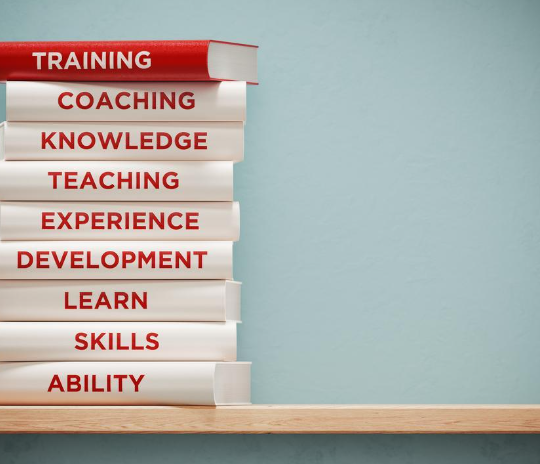 Higher education is a worthy pursuit for just about everyone. Unfortunately, most of us are busy with work, family, or other projects. Luckily, you don’t have to drop everything you’re doing to seek a bachelor’s degree. Getting a degree online is a great way to prepare for a future career, enhance a current one, or dive into another area of interest you may have.
Higher education is a worthy pursuit for just about everyone. Unfortunately, most of us are busy with work, family, or other projects. Luckily, you don’t have to drop everything you’re doing to seek a bachelor’s degree. Getting a degree online is a great way to prepare for a future career, enhance a current one, or dive into another area of interest you may have.
Whether you’re getting a BA or BS degree for the first time or are getting a second (or even third) bachelor’s degree, doing it online is convenient, easy, and just as valid as obtaining the degree from a traditional brick-and-mortar school. Here are a few tips for getting your bachelor’s degree using online college courses.
Table of Contents
Focus on an Area of Study
It may seem obvious, but knowing what you want to study is critical to choosing the right bachelor’s degree program. It all starts with searching for something that suits your interests and deciding what you want to do with your career. Maybe you want to learn marketing to supplement your existing business acumen or information technology to help you get ahead with digitizing some of your existing operations.
Next comes the desire and motivation to attend an online college. After that, start looking for the right online bachelor’s degree program that will work to fit your schedule and meet your needs. Whether it’s business/finance, healthcare, or information technology, a bachelor’s degree program has everything you need to leverage your interests and skills to the point where you can position yourself on the path to success.
Evaluate Institutional Accreditation
The word “accreditation” gets thrown around a lot when it comes to colleges. But what is it, anyway? Accreditation is basically a quality control metric for colleges and institutions of higher learning. And accreditation matters; potential employers often look for candidates who attended accredited institutions and accreditation tells potential students that the college is providing an acceptable level of education for its students.
It’s actually a legal status/designation with a storied history. How good are the student services? What kind of quality is the equipment and facility? Are the faculty qualified? Are the students adequately prepared following their classes per the college’s mission? Are the recruiting practices above board? Is tuition reasonable and are there financial aid options for students? These are all questions an accrediting agency will ask when assessing a school.
Find Out What Student Support Service are Offered
Speaking of student support services, be sure to scope out what’s available at your prospective online school. Student services are a way for the college to assist students with various pivotal moments of their academic careers. It begins with a strong advising program. This gets students on track with finding and enrolling for the proper classes they need to complete their degree. It also helps them manage their course load and plan their studies in a way that optimizes flexibility. services include the online library – providing access to critical journals and ebooks along with additional research materials –as well as career services, which can provide a solid foundation for jumping into the workforce once the degree is complete. It is wise to remember, however, the career services are not resume writing or CV writing services and it does not guarantee a job.
Other services include assistance for military veterans at some colleges and ADA compliance standards for every college. Most colleges also offer some form of complaint/conflict resolution services as needed. Student services exist to help students succeed, and are vital when it comes to online learning at the college level.
Connect with Professors and Faculty
Before jumping into your coursework, it’s prudent to reach out and connect with your professors and some of the faculty with whom you’ll be working as you pursue the bachelor’s degree. Professors are often experts—or at least well-established career-minded individuals—within their fields. Getting to know them can help students prepare for the course material, motivate themselves to complete it, and understand it better.
Virtual office hours by way of email, chat, or video conferencing are all excellent methods with which to interact with professors and various college faculty. Just because it’s online, doesn’t mean you can’t forge lasting, personable relationships with instructors. Professors are often the most valuable resource a student can access and should not be overlooked as you complete your online studies.
Learn About Admission and Financial Aid Policies/Procedures

When You are going to attend an online college, you need to know about their admission policies. Some schools may require admissions tests or other assessments to enter into a program. Others will require official transcripts if you’re transferring from another school. When you’re researching colleges, strive to understand all the admissions requirements prior to applying.
That way, you’ll avoid any potential pitfalls or snags in the process down the line. Financial aid is also important. A decent online college should be able to answer the following questions: How are you going to pay for your classes? Do you seek grants, scholarships, or other financial aid opportunities offered by the University and other parties? Can you fill out the FAFSA? Are there student support services available to answer financial aid questions? Going into the process with knowledge ahead of time is always going to be the best bet. And don’t forget to ask pointier questions before committing to an online college.







